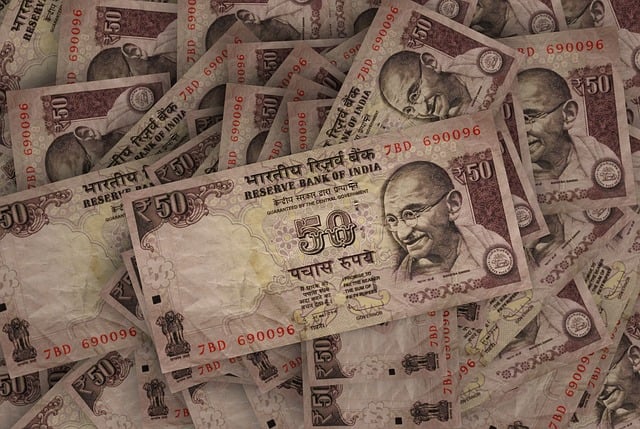Opening a Bank Account in France: What You Need to Know

France, with its rich culture, vibrant cities, and high quality of life, is an attractive destination for expatriates, students, and professionals. Whether you’re moving to France for work, study, or retirement, opening a bank account is one of the first steps to settling into your new life. While the process may seem daunting at first, understanding the requirements and procedures can make it much smoother. Here’s everything you need to know about opening a bank account in France.
Why Open a Bank Account in France?
Having a local bank account is essential for managing your finances effectively while living in France. It allows you to:
- Receive your salary or pension.
- Pay bills and rent easily.
- Access French banking services like loans, credit cards, and savings accounts.
- Avoid excessive fees associated with international transactions.
Types of Bank Accounts in France
Before opening an account, it’s important to understand the different types of accounts available:
- Compte Courant (Current Account):
This is the most common type of account used for everyday banking activities such as paying bills, withdrawing cash, and receiving income. - Livret A (Savings Account):
A tax-free savings account that offers a modest interest rate. It’s ideal for short-term savings and accessible to anyone residing in France. - Plan Épargne Logement (PEL) / Compte Épargne Logement (CEL):
Specialized savings accounts designed to help individuals save for real estate purchases. - Joint Account (Compte Joint):
An account shared between two or more people, often used by couples or families. - Non-Resident Account:
For those who don’t have residency status but still need access to French banking services.
Documents Required to Open a Bank Account
To open a bank account in France, you’ll typically need the following documents:
- Proof of Identity:
- A valid passport or national ID card.
- Some banks may accept a driver’s license if it includes a photo.
- Proof of Address:
- A utility bill, rental agreement, or official letter (e.g., from your employer or university) dated within the last three months.
- Note: If you’ve just arrived in France, this requirement can be challenging. In such cases, some banks may accept a temporary address confirmation.
- Proof of Residency Status:
- Visa or residence permit (titre de séjour).
- Non-EU citizens will need to provide proof of legal stay in France.
- Tax Identification Number (Numéro Fiscal):
- While not always mandatory, having your French tax number can expedite the process.
- Proof of Income:
- Recent pay slips, employment contract, or scholarship letter.
- Self-employed individuals may need to provide invoices or business registration documents.
- Initial Deposit:
- Most banks require a small initial deposit to activate the account, usually ranging from €100 to €300.
Steps to Open a Bank Account
- Choose the Right Bank:
France has a mix of traditional banks (e.g., BNP Paribas, Société Générale, Crédit Agricole) and online banks (e.g., Revolut, N26, Boursorama). Traditional banks offer personalized service but may charge higher fees, while online banks are more affordable and convenient. - Schedule an Appointment:
Contact the bank branch to book an appointment. Many banks prefer face-to-face meetings for account openings. - Submit Your Documents:
Bring all required documents to your appointment. The banker will verify them and guide you through the application process. - Sign the Contract:
Once approved, you’ll sign a contract outlining the terms and conditions of your account. - Receive Your Banking Tools:
After opening the account, you’ll receive your debit card, checkbook (optional), and login details for online banking.
Challenges Expats May Face
While the process is straightforward for EU citizens, non-EU residents might encounter some hurdles:
- Language Barrier: Not all bank staff speak fluent English, so learning basic French banking terminology can be helpful.
- Proof of Address: Newly arrived expats often struggle to provide this document. Consider using a friend’s address or contacting your embassy for assistance.
- Minimum Balance Requirements: Some banks impose minimum balance rules, which can be restrictive for newcomers.
Tips for a Smooth Experience
- Learn Basic French Phrases:
Knowing phrases like “Je voudrais ouvrir un compte bancaire” (“I would like to open a bank account”) can go a long way. - Start Early:
Begin the process as soon as possible after arriving in France to avoid delays. - Consider Online Banks:
Digital banks like Boursorama and ING Direct offer user-friendly interfaces and lower fees, making them a great option for expats. - Ask About Fees:
Be sure to inquire about monthly maintenance fees, ATM withdrawal charges, and international transfer costs. - Seek Assistance:
If you’re struggling, consult relocation agencies or expat communities for advice and recommendations.
Special Cases
- Students:
Many banks offer special packages for students, including reduced fees and free accounts. Bring your student ID and enrollment certificate. - Freelancers and Entrepreneurs:
Opening a business account requires additional documentation, such as proof of company registration and tax filings. - Non-Residents:
Some banks cater specifically to non-residents, offering accounts in multiple currencies and tailored financial products.



